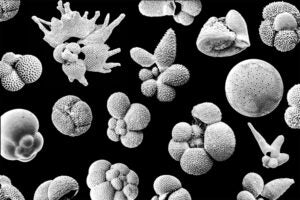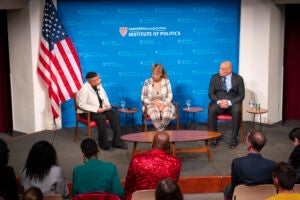Tag: basic research
-
Nation & World
More than a courier
Now research suggests that a nerve cells’ axons may be making decisions on their own, challenging the dogma that the nucleus and cell body are the control centers of the neuron.
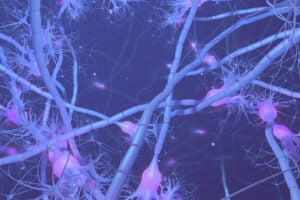
-
Nation & World
Termites shape and are shaped by their mounds
Researchers investigate how centimeter-sized termites, without architects, engineers or foremen, can build complex, long-standing, meter-sized structures all over the world.
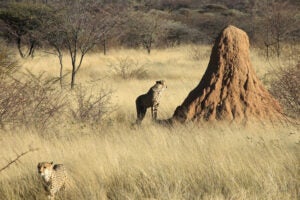
-
Nation & World
Rapid evolution, illustrated
A study in which mice were released into outdoor enclosures to track how light- and dark-colored specimens survived confirms that mice survive better in similarly colored habitats, providing insights into evolution.
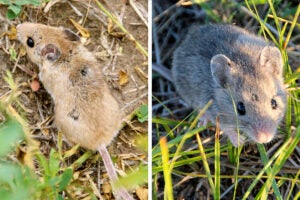
-
Nation & World
Microbial manufacturing
Emily Balskus and a team of researchers untangled how soil bacteria are able to manufacture streptozotocin, an antibiotic and anti-cancer compound.
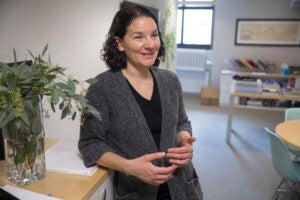
-
Nation & World
Twins in space
To understand the strain that space flight places on the body, NASA-affiliated researcher Brinda Rana has been examining the molecular changes in the twin astronauts Scott and Mark Kelly for five years.
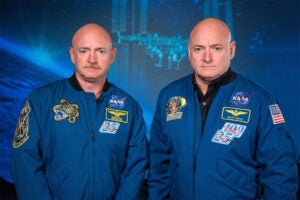
-
Nation & World
Looking at lunglessness
A recent study shows that a gene that produces surfactant protein c — a key protein for lung function — is expressed in the skin and mouths of lungless salamanders, suggesting it also plays an important role for cutaneous respiration.
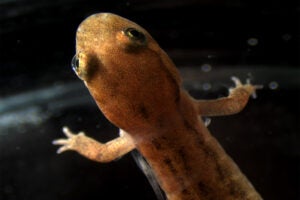
-
Nation & World
The master of survival
Proteins produced by the tardigrade are suspected of playing a role in the organism’s resilience, ultimately providing the basis for human therapies that halt tissue damage and prevent cell death.
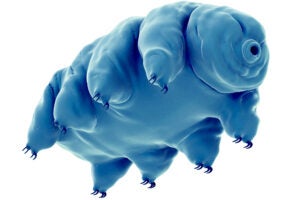
-
Nation & World
Radcliffe scholar tracks squirrels in search of memory gains
Radcliffe Fellow Lucia Jacobs hopes to gain insights on human memory from her work with squirrels.
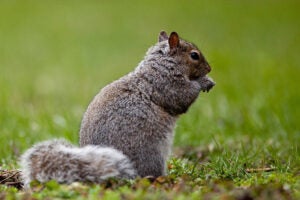
-
Nation & World
Reading teeth
By examining the teeth of Neanderthal infants, a team of researchers was able to glean insight into nursing and weaning behavior as well as winter and summer cycles. The study even found evidence that the Neanderthals had been exposed to lead — the earliest such exposure ever recorded in any human ancestor.
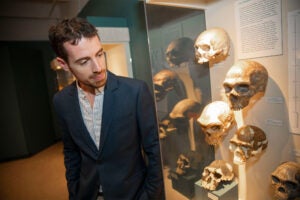
-
Nation & World
The love lives of fruit flies
Harvard study reveals how the neurobiology of fruit fly courtship can help illuminate understanding of human disorders of motivation.
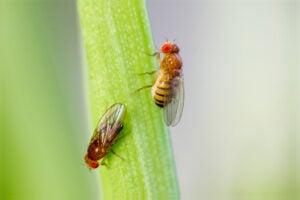
-
Nation & World
Eye-popping arachnids
Harvard researchers examined mysteries of color in the spider species Phoroncidia rubroargentea.
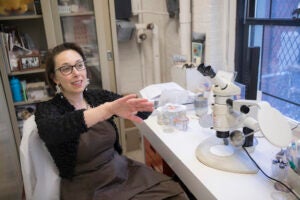
-
Nation & World
For new medicines, turn to pioneers
A new study shows that scientific research driven by curiosity is “the best route to the generation of powerful new medicines.”
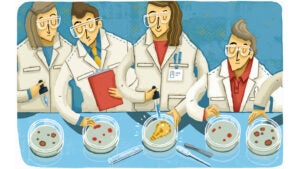
-
Nation & World
Fin to limb
New research brings scientists closer to unraveling one of the longest-standing questions in evolutionary biology — whether limbs, particularly hind limbs, evolved before or after early vertebrates left the oceans for life on land.
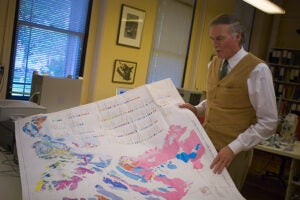
-
Nation & World
Remember research, Faust urges
During Washington visit, Harvard President Drew Faust tells business, policy, and diplomatic leaders that they should maintain a strong research partnership between the federal government and higher educational institutions.

-
Nation & World
Scientists discover how ocean bacterium turns carbon into fuel
Reduce. Reuse. Recycle. We hear this mantra time and again. When it comes to carbon—the “Most Wanted” element in terms of climate change—nature has got reuse and recycle covered. However, it’s up to us to reduce.

